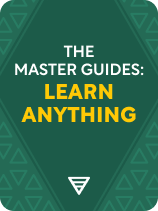

This article is an excerpt from the Shortform book guide to "The Master Guides: Learn Anything" by Shortform. Shortform has the world's best summaries and analyses of books you should be reading.
Like this article? Sign up for a free trial here.
How much does your mindset affect your ability to learn? Do you know the good news about neuroplasticity?
If you want to learn anything well, you must adopt a learner’s mindset, which is basically a growth mindset toward learning. We’ll discuss the characteristics of a learner’s mindset, the scientific basis behind it, and the practical steps and benefits of adopting one yourself.
Read more to understand a learner’s mindset and the difference it makes.
Adopt a Learner’s Mindset
The first step to learning anything you want is to believe you can learn anything you want. This is a learner’s mindset, also known as a growth mindset. The idea is rooted in the concept of neuroplasticity—the brain’s ability to change and adapt throughout our lives.
In Mindset, psychologist Carol S. Dweck differentiates between a growth mindset and the more common fixed mindset, in which you believe your abilities are unchangeable and that you were born with a certain amount of intelligence. On the other hand, if you adopt a growth mindset, you view your innate abilities as a starting point on which you can build with hard work, persistence, and the right learning strategies. A growth mindset frees you from judging yourself so you can explore your full potential. You may even find you have a passion for learning and seek challenges that stretch your mind. In this case, “stretching your mind” is more than just an expression.
While it’s true that no two people are the same, we all have the capacity for growth. Scientists now know that the human brain is constantly forming and discarding neural pathways to incorporate new information and skills. In Limitless Mind, educator Jo Boaler explains that, any time you learn a new idea, your brain forms new connections, strengthens them with repeated use, and creates new links between preexisting neural pathways. The key lies in adopting the belief that you can learn. Research shows that your attitude toward learning has a direct impact on how your brain functions: People who believe they can learn show heightened levels of brain activity compared to those who believe their abilities are fixed.
When you have a fixed mindset, you believe (or were told) that you were born with specific traits and a certain, unchangeable amount of intelligence. Dweck and Boaler both assert that many of us are trained in this false mindset from an early age—for instance, by teachers who believe that IQ, inherent talent, or differences based on gender and race determine everything: You’re either smart or you’re dumb; you can learn or you can’t. Fixed mindset thinking is especially pernicious and must be corrected to unlock your full potential.

———End of Preview———
Like what you just read? Read the rest of the world's best book summary and analysis of Shortform's "The Master Guides: Learn Anything" at Shortform.
Here's what you'll find in our full The Master Guides: Learn Anything summary:
- How you can learn anything you want at any point in your life
- Advice from experts on how to master the skill of learning
- A guide on how to improve your memorization, comprehension, and more






